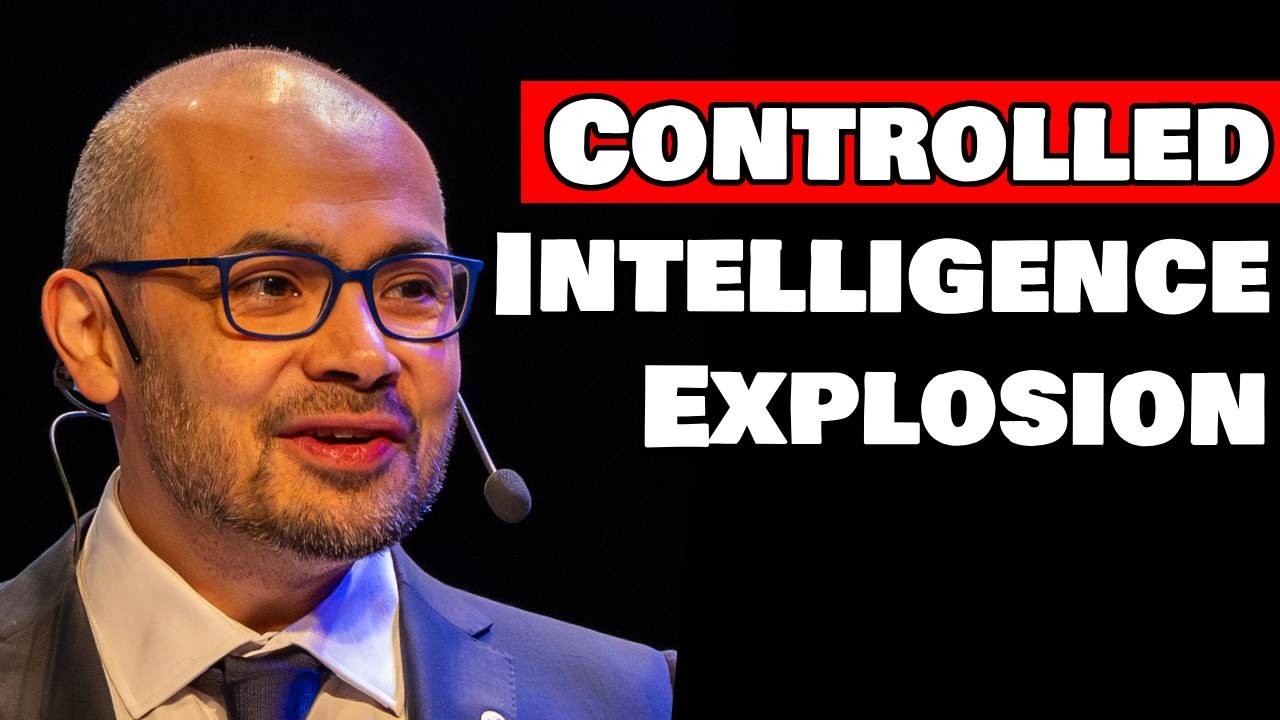Demis Hassabis explains that while the concept of an “intelligence explosion” is a concern, his team at DeepMind focuses on combining AI techniques like self-play and reinforcement learning to develop more advanced, adaptable systems, exemplified by AlphaZero’s rapid mastery of games. He emphasizes that these methods, if extended beyond controlled environments to real-world problems, could lead to transformative progress in AI capabilities, especially through self-improvement and scaling techniques.
In the video, Demis Hassabis discusses the concept of an “intelligence explosion” and clarifies that his team at DeepMind is not aiming for an uncontrolled one. Instead, he emphasizes exploring the potential of combining different AI techniques, such as evolutionary programming with foundation models, to create more advanced and adaptable systems. Hassabis highlights the importance of self-improvement loops, where AI systems can learn to enhance their own capabilities, referencing AlphaZero’s rapid mastery of chess and Go within hours through self-play. However, he notes that these successes are limited to well-defined, simplified domains, and the challenge remains to extend such approaches to the complex, messy real world.
He then compares the evolution of AlphaGo and AlphaZero, illustrating how AlphaGo initially learned from human data, while AlphaZero started from scratch, learning solely through self-play. AlphaZero’s ability to surpass previous models within days demonstrates the power of self-improvement and reinforcement learning. Hassabis points out that this paradigm shift—letting AI systems improve themselves without human input—has led to superhuman performance in games, and suggests that similar methods could accelerate progress in broader AI applications, including language models and robotics.
The conversation shifts to recent developments, including the integration of techniques from game-playing AI into large language models (LLMs). Hassabis discusses how scaling up reinforcement learning (RL) and applying self-play to models like LLMs could lead to significant breakthroughs, especially in coding and reasoning tasks. He mentions ongoing research, such as Chinese-US collaborations on training models to solve problems without human supervision, using proposer-solver architectures that generate and solve challenges through self-play. These approaches aim to enable models to generalize better and solve unseen problems, potentially revolutionizing AI capabilities in complex domains.
Hassabis reflects on the historical progression of self-learning AI systems, from early checkers programs to modern multi-game engines like AlphaZero. He emphasizes that the core idea—self-play and reinforcement learning—has repeatedly proven effective across different games and tasks. The key challenge, he notes, is translating these methods from controlled game environments to real-world problems like mathematics, law, or reasoning, where outcomes are less straightforward. Nonetheless, he sees promising signs that improvements in coding and reasoning through self-supervised learning could lead to rapid, transformative advances in AI.
Finally, the video discusses the future trajectory of AI development, focusing on how scaling reinforcement learning—particularly through self-play—could dominate the training process for large models. Hassabis highlights that if models can learn to improve themselves without relying heavily on human data, the efficiency and power of AI systems could increase dramatically. He advocates for understanding the history of these techniques and their potential to merge different AI “tech trees,” ultimately leading to more general, capable, and autonomous AI systems. The overarching message is that these innovations could accelerate AI progress in unprecedented ways, with profound implications across many fields.
